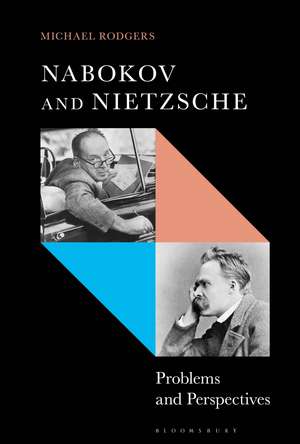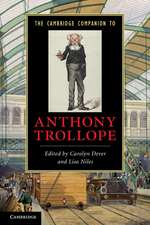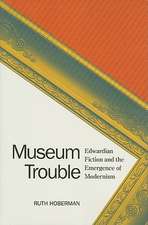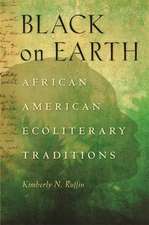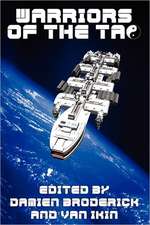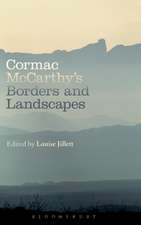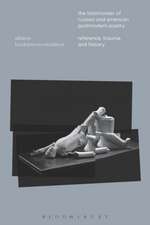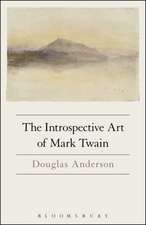Nabokov and Nietzsche: Problems and Perspectives
Autor Dr Michael Rodgersen Limba Engleză Paperback – 30 oct 2019
| Toate formatele și edițiile | Preț | Express |
|---|---|---|
| Paperback (1) | 229.13 lei 6-8 săpt. | +82.44 lei 7-13 zile |
| Bloomsbury Publishing – 30 oct 2019 | 229.13 lei 6-8 săpt. | +82.44 lei 7-13 zile |
| Hardback (1) | 654.83 lei 6-8 săpt. | |
| Bloomsbury Publishing – 18 apr 2018 | 654.83 lei 6-8 săpt. |
Preț: 229.13 lei
Preț vechi: 296.22 lei
-23% Nou
Puncte Express: 344
Preț estimativ în valută:
43.86€ • 45.14$ • 36.97£
43.86€ • 45.14$ • 36.97£
Carte tipărită la comandă
Livrare economică 01-15 martie
Livrare express 25-31 ianuarie pentru 92.43 lei
Preluare comenzi: 021 569.72.76
Specificații
ISBN-13: 9781501359132
ISBN-10: 1501359134
Pagini: 192
Ilustrații: 2 b/w illustrations
Dimensiuni: 152 x 229 x 14 mm
Greutate: 0.26 kg
Editura: Bloomsbury Publishing
Colecția Bloomsbury Academic
Locul publicării:New York, United States
ISBN-10: 1501359134
Pagini: 192
Ilustrații: 2 b/w illustrations
Dimensiuni: 152 x 229 x 14 mm
Greutate: 0.26 kg
Editura: Bloomsbury Publishing
Colecția Bloomsbury Academic
Locul publicării:New York, United States
Caracteristici
Charts new and significant relationships between Vladimir Nabokov's writing and Friedrich Nietzsche's philosophy
Notă biografică
Michael Rodgers is Associate Lecturer in English Literature at the Open University, UK. He is co-editor, with Susan Elizabeth Sweeney, of Nabokov and the Question of Morality: Aesthetics, Metaphysics and the Ethics of Fiction (2016).
Cuprins
AcknowledgmentsPermissionsList of AbbreviationsIntroductionSection I: Nietzschean Engagements1. Eternal Recurrence and Nabokov's Art of Memory2. The Will to Disempower: Nabokov and His ReadersSection II: Nietzschean Readings3. Lolita's Nietzschean Morality4. Pale Fire: A Differing PerspectiveSection III: Beyond Nietzsche5. Rewriting Nietzsche6. Nabokov's 'Other' WorldConclusionBibliographyIndex
Recenzii
Like many Russian writers during the Silver Age, Nabokov was familiar with the philosophy of Friedrich Nietzsche. Rather than providing a traditional study of influence, however, Rodgers uses Nietzschean themes that surface in Nabokov's work-including eternal recurrence, amor fati, master-slave morality, the Übermensch, and productive experiences of moral disorientation and perspectivism (which demands individuals' active engagement with truth)- to examine, often with insight and subtlety, problems in interpreting the author and his writing that have haunted Nabokov studies for decades.
Nabokov and Nietzsche identifies a new, previously unexamined and capaciously illuminating intellectual context for the writings and opinions of this émigré Russian novelist turned international celebrity, even as it provides a wide range of insights into contemporary Nabokov criticism.
Offers a much richer and more complex engagement with Nabokov and Nietzsche, as [Rodgers'] book exemplifies the productive ways literature and philosophy can be read together, can reflect but, more importantly, challenge each other ... Well organized.
Nabokov and Nietzsche: Problems and Perspectives is the first in-depth examination of the relationship between Vladimir Nabokov's writing and Friedrich Nietzsche's philosophy. Rodgers delivers on his promise to provide an interesting contribution that covers an existing lacuna in the Nabokov studies. His book is engaging reading for all those interested in the history of ideas and in the adoption of philosophical concepts by modernist literature.
Michael Rodgers' study, initiated by his discovery of Zarathustra on a book list compiled by Nabokov in Bolshevik Russia in 1918, constructs an engaging and compelling argument for the validity of reading Nabokov in the light of Nietzschean thought. Through its lively and insightful analysis of Nabokov's fiction, criticism and auto/biography, set against the principal tenets of Nietzsche's philosophy-eternal recurrence, the fluidity of truth and the Übermensch-Nabokov and Nietzsche enriches our responses both to problematic issues of transgression, alienation and discomfort across Nabokov's work, and to fundamental questions of morality and metaphysics.
Nabokov was certainly influenced by Nietzsche because almost every European writer in his generation was, but this subtle and intelligent book takes us far beyond the question of direct debt. A series of astute readings of key moments in Nabokov's work suggests that his achievement was the creation not of bliss, as he said, or of pure art or indirect morality, but of a complex 'uneasiness' that is the artistic measure of the unsettled world Nietzsche set us on the path to understanding.
Michael Rogers' book Nabokov and Nietzsche: Problems and Prospects is of great interest. Its author offers something more than a comparative study . offers a fascinating journey through the world of Nabokov's works . Rogers' concept as a whole is compelling, fruitful, and indeed allows us to see the many intersections between Nabokov's work and Nietzsche's philosophy.
Nabokov and Nietzsche identifies a new, previously unexamined and capaciously illuminating intellectual context for the writings and opinions of this émigré Russian novelist turned international celebrity, even as it provides a wide range of insights into contemporary Nabokov criticism.
Offers a much richer and more complex engagement with Nabokov and Nietzsche, as [Rodgers'] book exemplifies the productive ways literature and philosophy can be read together, can reflect but, more importantly, challenge each other ... Well organized.
Nabokov and Nietzsche: Problems and Perspectives is the first in-depth examination of the relationship between Vladimir Nabokov's writing and Friedrich Nietzsche's philosophy. Rodgers delivers on his promise to provide an interesting contribution that covers an existing lacuna in the Nabokov studies. His book is engaging reading for all those interested in the history of ideas and in the adoption of philosophical concepts by modernist literature.
Michael Rodgers' study, initiated by his discovery of Zarathustra on a book list compiled by Nabokov in Bolshevik Russia in 1918, constructs an engaging and compelling argument for the validity of reading Nabokov in the light of Nietzschean thought. Through its lively and insightful analysis of Nabokov's fiction, criticism and auto/biography, set against the principal tenets of Nietzsche's philosophy-eternal recurrence, the fluidity of truth and the Übermensch-Nabokov and Nietzsche enriches our responses both to problematic issues of transgression, alienation and discomfort across Nabokov's work, and to fundamental questions of morality and metaphysics.
Nabokov was certainly influenced by Nietzsche because almost every European writer in his generation was, but this subtle and intelligent book takes us far beyond the question of direct debt. A series of astute readings of key moments in Nabokov's work suggests that his achievement was the creation not of bliss, as he said, or of pure art or indirect morality, but of a complex 'uneasiness' that is the artistic measure of the unsettled world Nietzsche set us on the path to understanding.
Michael Rogers' book Nabokov and Nietzsche: Problems and Prospects is of great interest. Its author offers something more than a comparative study . offers a fascinating journey through the world of Nabokov's works . Rogers' concept as a whole is compelling, fruitful, and indeed allows us to see the many intersections between Nabokov's work and Nietzsche's philosophy.
